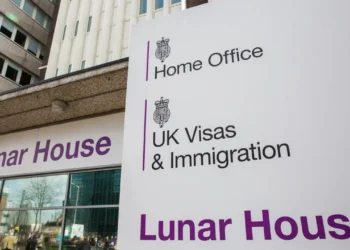The UK government has announced urgent plans to introduce new legislation that would prevent sentencing guidelines from treating offenders differently based on ethnicity or cultural background. The move follows a controversial proposal by the Sentencing Council that suggested Pre-Sentencing Reports could take a defendant’s ethnicity into account when determining sentencing recommendations.
Government’s Response to Sentencing Council’s Guidelines
Lord Chancellor Shabana Mahmood will present the Sentencing Guidelines (Pre-Sentence Reports) Bill to Parliament today, April 2, 2025. The government is aiming to fast-track the bill into law, ensuring that judicial guidance remains neutral and does not create disparities in sentencing outcomes based on race or cultural identity.
In a firm statement, Mahmood criticized the Sentencing Council’s proposal, arguing that it could undermine public confidence in the fairness of the judicial system. Gov.uk has outlined the government’s position, emphasizing that justice must be blind to ethnicity, religion, or cultural factors.
The Legal and Ethical Concerns
The Sentencing Council, an independent body responsible for developing sentencing guidelines for courts in England and Wales, had proposed adjustments to Pre-Sentencing Reports (PSRs). These reports help judges determine the most appropriate sentences, taking into account factors such as background, rehabilitation prospects, and social circumstances.
However, critics, including legal experts and policymakers, have raised concerns that introducing racial or cultural considerations in sentencing reports could lead to an unequal application of justice. The principle of judicial impartiality is central to the UK’s legal framework, as reaffirmed by the Equality Act 2010, which prohibits discrimination based on race, religion, or ethnicity.
Government’s Justification for Blocking the Guidelines
The UK government has formally objected to the Sentencing Council’s proposed framework, citing concerns that it could create a two-tiered justice system. According to BBC News, the Ministry of Justice (MoJ) has stated that such guidelines would be incompatible with fundamental legal principles and could set a dangerous precedent.
Mahmood reinforced this position, stating:
“These guidelines create a justice system where outcomes could be influenced by race, culture, or religion. This differential treatment is unacceptable – equality before the law is the backbone of public confidence in our justice system.”
The government has confirmed that it has worked closely with Parliament to ensure the bill is debated and passed swiftly. The Sentencing Guidelines (Pre-Sentence Reports) Bill will make it clear that all judicial guidance must remain neutral and must not favor or disadvantage any group.
Reactions from Legal Experts and Civil Rights Groups
The proposed legislation has sparked widespread debate among legal experts, civil rights organizations, and political commentators. Some argue that sentencing disparities already exist and that the Sentencing Council’s guidelines were an attempt to address deeper structural inequalities. A study by the Lammy Review found that Black, Asian, and Minority Ethnic (BAME) individuals often face harsher sentencing outcomes compared to their white counterparts.
Civil rights groups, such as Liberty, have raised concerns that blocking the Sentencing Council’s recommendations could ignore the impact of systemic bias in the justice system. However, other legal experts, including the Bar Council of England and Wales, argue that fairness in sentencing should be upheld without creating different legal standards for different groups.
The Next Steps: What Happens Now?
With the bill now in Parliament, the government is prioritizing swift legislative action to ensure judicial consistency. The Sentencing Council has agreed to delay the implementation of its guidance while the bill is debated and processed.
In the coming weeks, legal analysts expect further discussions on whether the Sentencing Guidelines (Pre-Sentence Reports) Bill strikes the right balance between addressing systemic inequalities and preserving the principle of equal treatment before the law.
Key Takeaways:
- The UK government is introducing a bill to prevent race-based sentencing guidelines from being implemented.
- The Sentencing Council’s proposal aimed to factor ethnicity into Pre-Sentencing Reports, sparking legal and ethical concerns.
- Legal experts remain divided on whether the government’s move upholds fairness or overlooks systemic bias in sentencing.
- The bill is expected to pass swiftly, reinforcing judicial impartiality in the UK’s legal system.












